The latest UN report leaves no doubt – the current worldwide situation is tragic and, at least partly, that’s the fault of the COVID-19 pandemic. The authors of this report even say the pandemic has completely erased four years of progress. Only in 2022, the number of people living in extreme poverty rose by at least 76 million.
Earlier this year, the United Nations published a comprehensive report on the current worldwide situation. According to the report, the COVID-19 pandemic has so far cost the lives of close to 15 million people. But that’s just the beginning of the pandemic’s terrible impact. The UN mentions overwhelmed healthcare systems, millions living in poverty, the increase in domestic violence and many other significant problems. You can read this report here: https://www.un.org/sustainabledevelopment/progress-report.
Inside, you will find over fifteen areas that require quick and extensive help. We closely analysed this report and gathered some of the most important findings from it. Let’s have a look.
Poverty
Current estimations are that between 657 and 676 million people live in extreme poverty. The pre-pandemic projection was much lower – 581 million. In 2022 alone, this number increased by at least 76 million. What’s especially significant today, we have to struggle with so-called working poverty as well. Yes, this problem also affects people who are employed! In 2020, the working poverty rate rose for the first time in two decades resulting in over 8 million employees being pushed into impoverishment:
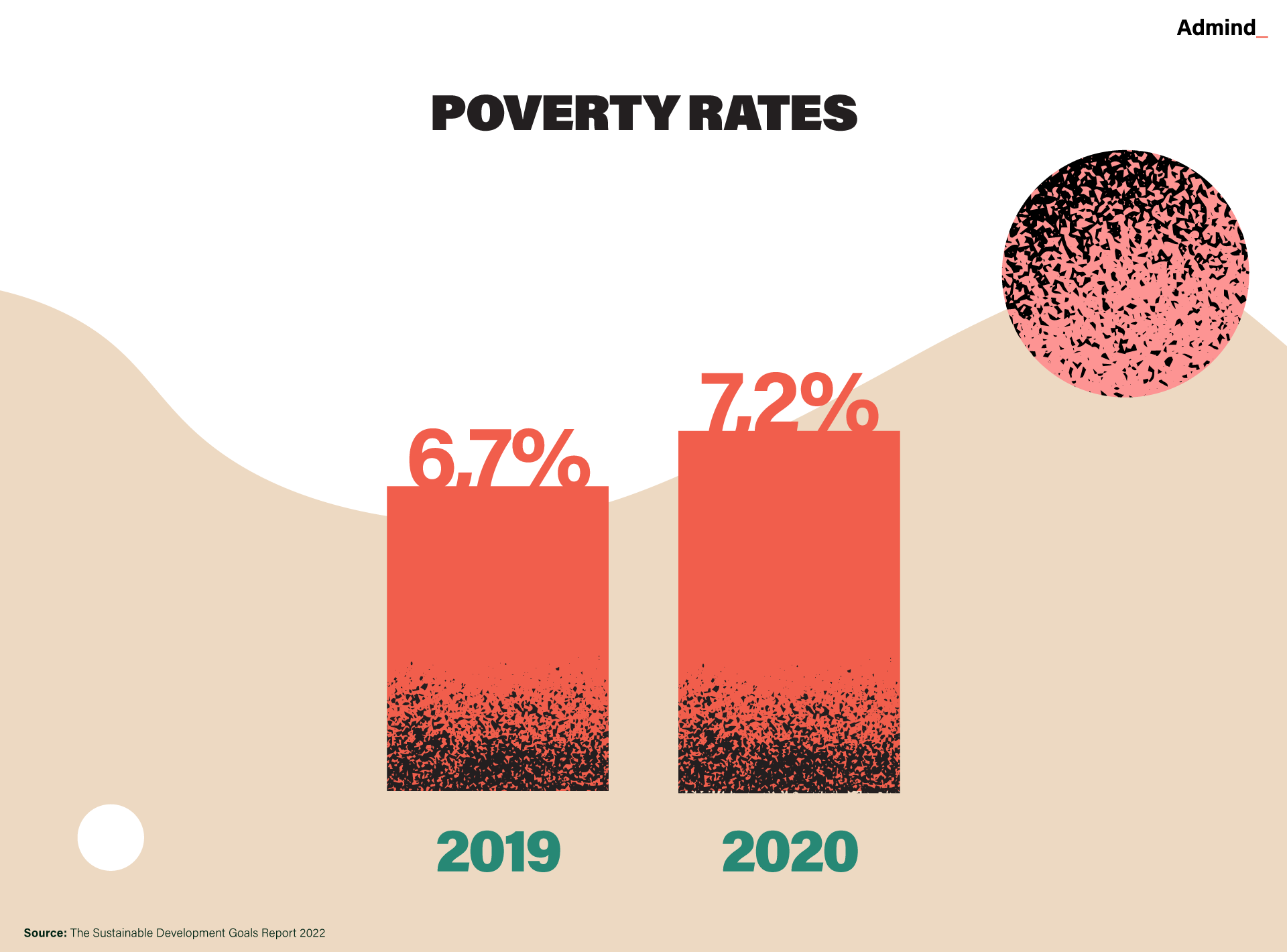
Hunger
World hunger has been a major problem for years, and today – it’s even more serious. The United Nations estimate that soaring food prices affected 47% of countries in 2020. One in ten people are suffering from hunger, and one in three people lack access to adequate food. The conflict in Ukraine only made things worse as these two countries – Ukraine and Russia – were responsible for 30% of wheat exports and 20% of maize exports.
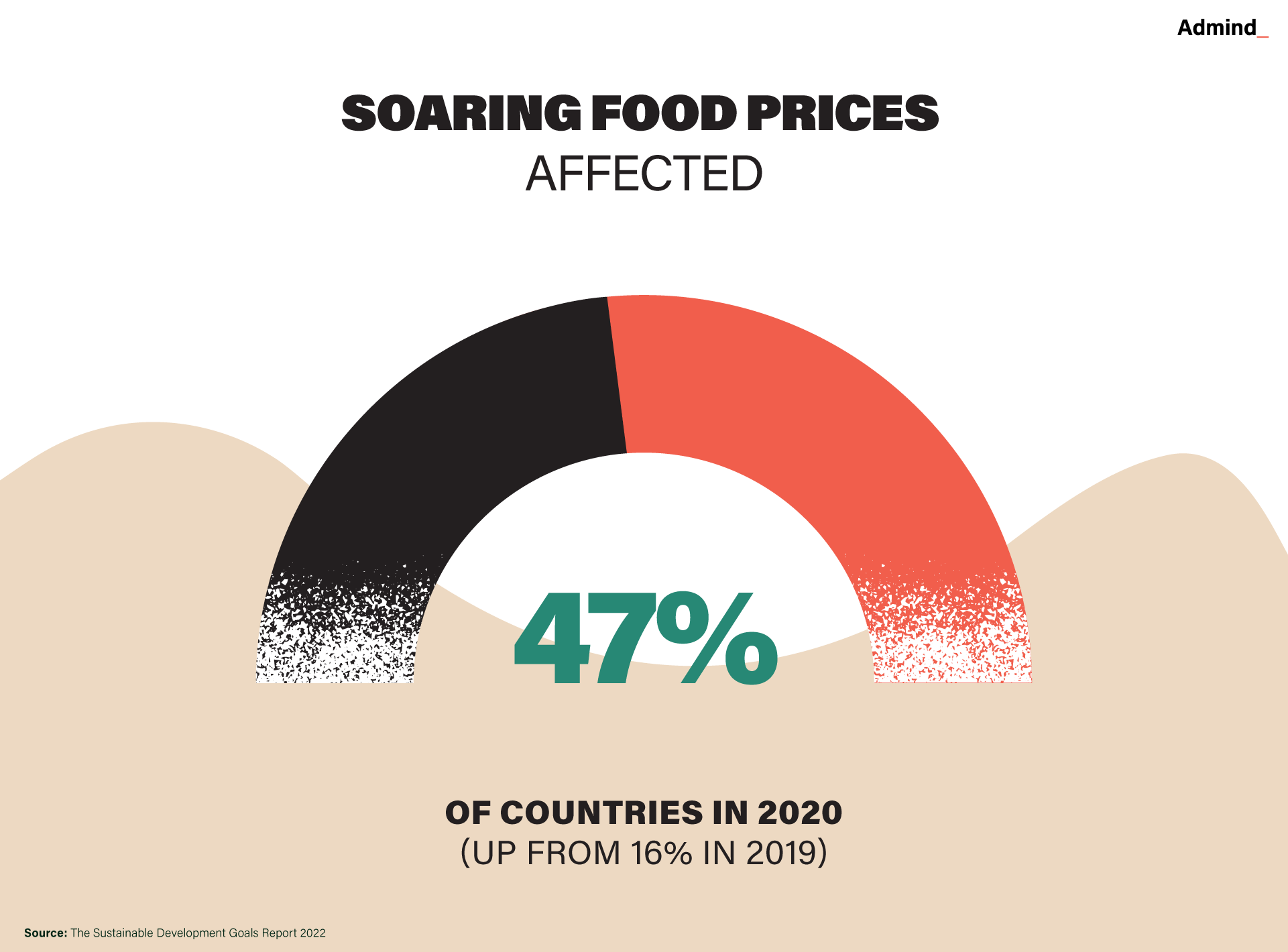
Health
COVID infected more than 500 million people worldwide and led to 15 million deaths, thus disrupting essential health services in 92% of countries and shortening global life expectancy. Almost all social groups were affected, especially older people, children and front-line healthcare workers. Interestingly, tuberculosis deaths have risen for the first time since 2005 (1.3 million in 2020 compared to 1.2 million in 2019).

Education
Estimations are that 147 million children missed over half of in-person instruction in the 2020-2021 period. Of course, because of the pandemic. This situation has only worsened education inequities. Although many countries try to improve the learning conditions, still 25% of primary schools (worldwide) lack electricity, drinking water or basic sanitation. And 50% lack computers or internet access. Undoubtedly, there’s still a lot to do!
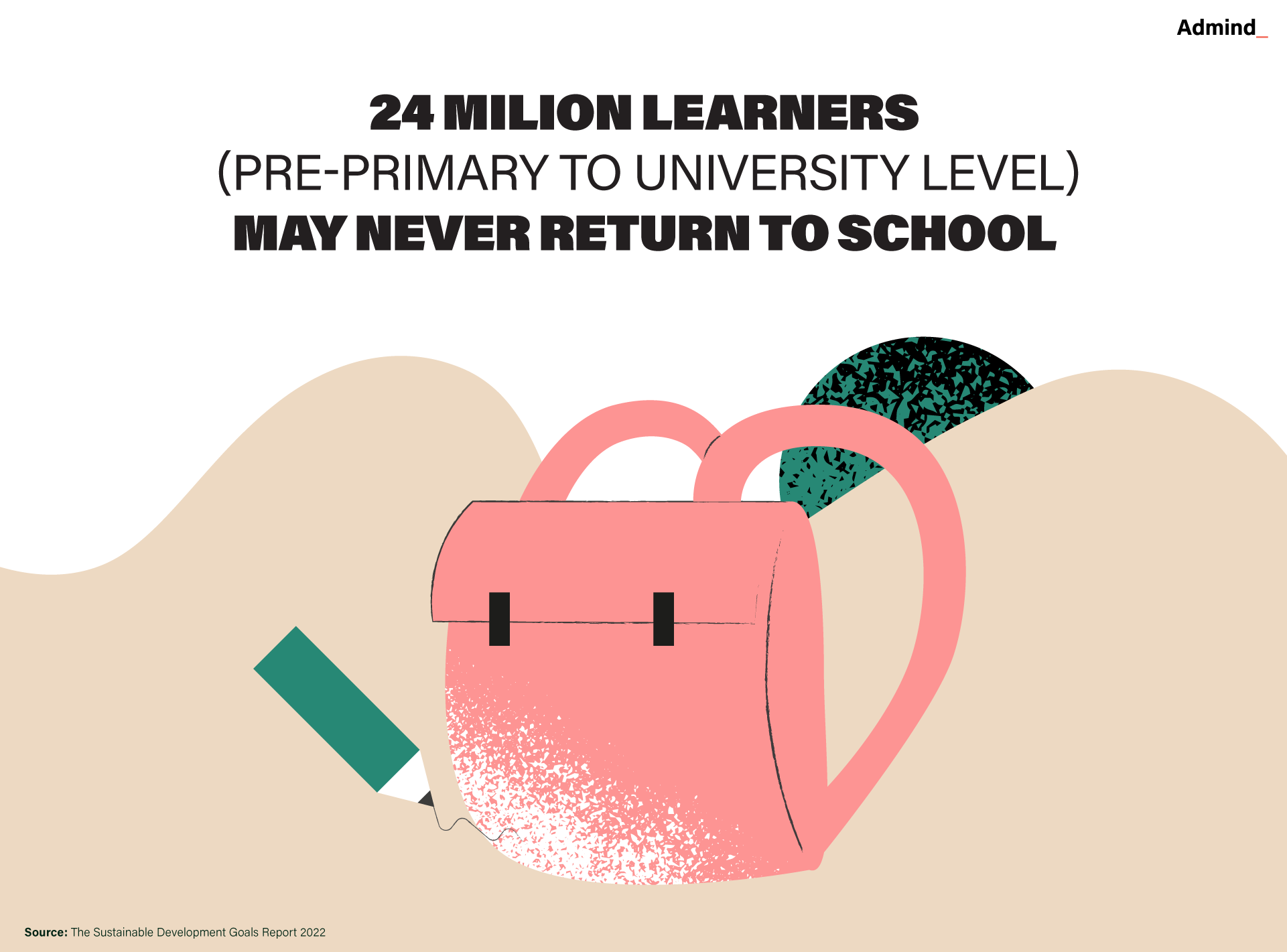
Unemployment
The global unemployment rate before COVID was at 5.4%. In 2020, it was 6.6%, and the UN estimates it will remain above the pre-pandemic level until at least 2023. Simultaneously, 1 in 10 children are engaged in child labour worldwide (which means 160 million children have to work every day).
And there is a whole list of other global problems that directly or indirectly result in unemployment. The list comprises:
- New COVID waves
- Rising inflation
- Supply-chain disruptions
- Health and work policy uncertainties
- Other typical labour market challenges

Inequality
Pandemic has caused the first rise (1.2%) in between-country income inequality in a generation. Before the pandemic, this index was gradually decreasing (-3.8% between 2013 and 2017 and -2.6% between 2017 and 2021). The number of people who experience discrimination is also alarmingly high – the UN reports that 20% have experienced it on at least one of the grounds prohibited under international human rights law.
And because of the situation in Ukraine, the number of refugees increased exponentially as well:
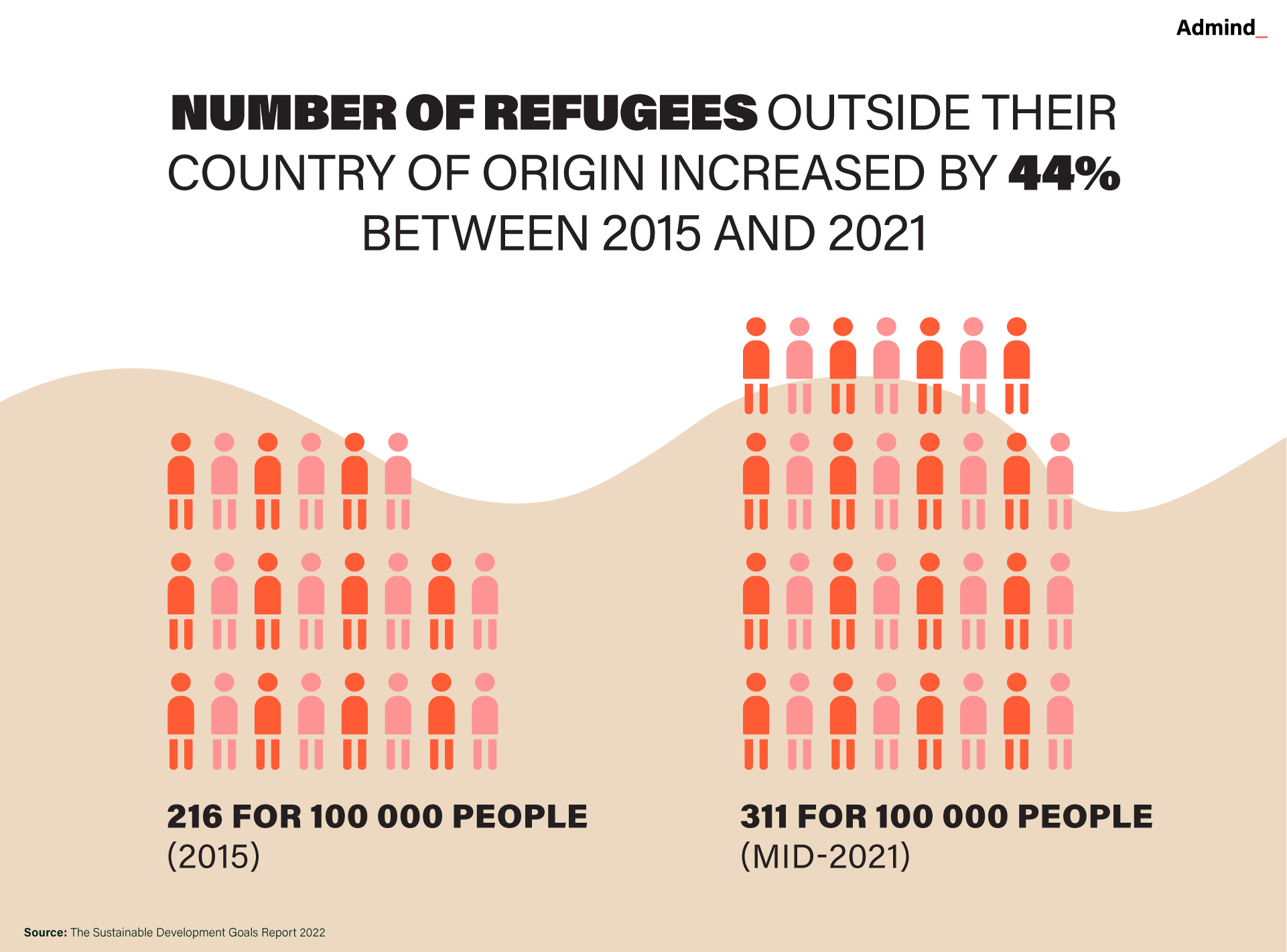
Pollution and poor living quality in the cities
The situation in large cities is not much better. The UN indicates the number of people living in slums revolves around 1 billion, and 99% of the world’s urban population breathes polluted air. And then there’s the problem of municipal solid waste. Globally, only 55% of it is processed in controlled facilities, meaning half of what we throw away isn’t processed in a safe (for us and for the environment) way.
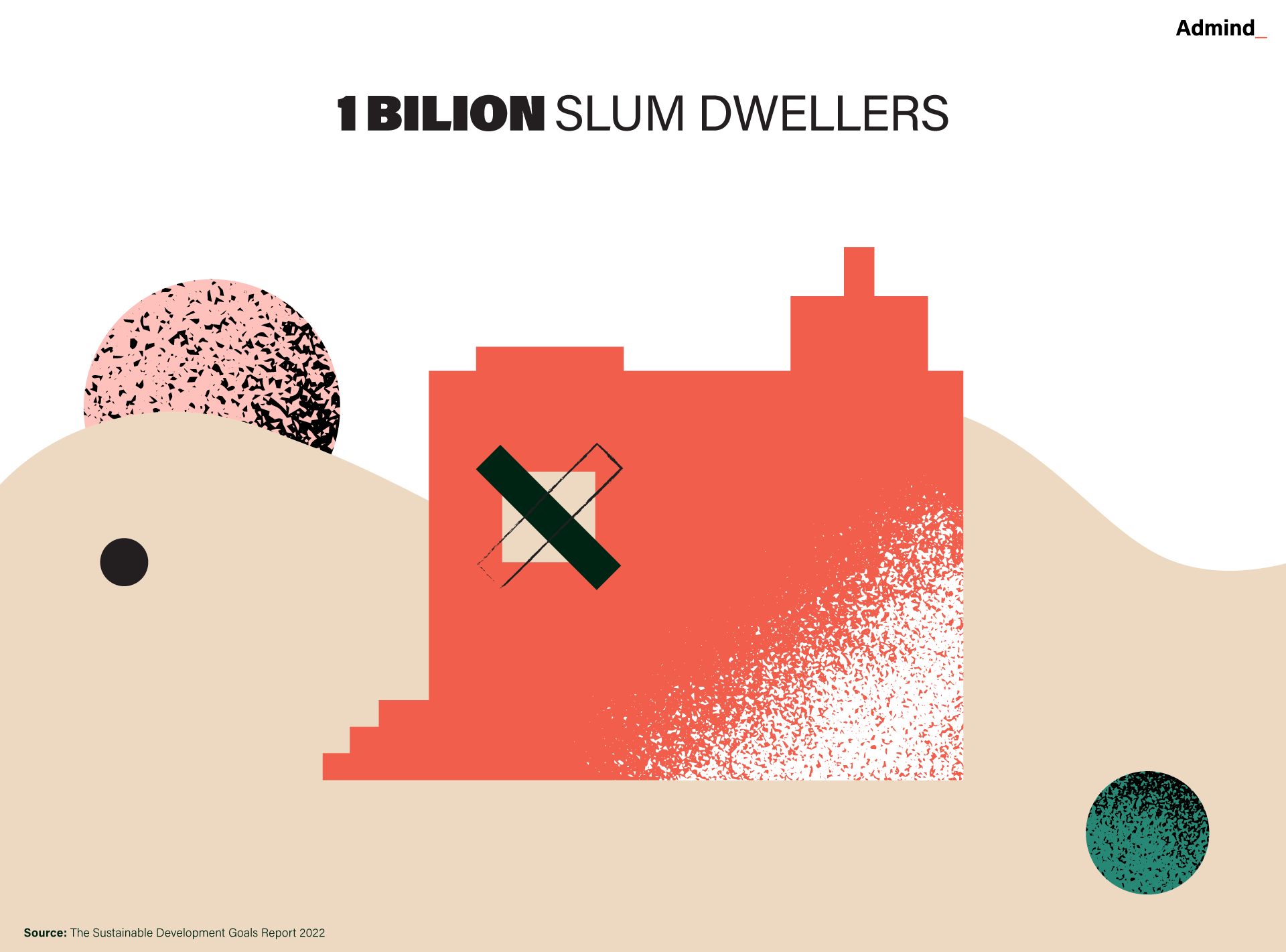
Report summary
In our short post, we didn’t mention everything from the report. There are many more problems that require immediate action. In many cases, it’s already too late, and we can just try to limit the adverse results of human activity.
What should be the main takeaway from the UN’s report? That we all have to act now and act quickly. Of course, one person, one company, or even one country can never deal with all these problems by itself. But the more of us are involved in what’s happening in our world, the greater chance we have of dealing with these problems (or at least limiting them to a minimum).
So, what should your company do? There are at least two areas that you can consider.
How conscious branding can help?
Conscious brands aren’t in the business just to make money. They acknowledge that the world needs fixing and do whatever they can to support society and the environment by acting on its behalf. Conscious brands pay attention to how they work, how much they pay people, who they hire, what materials they use to make goods and what their supply chains look like. If you want to be a conscious brand, think about what your company can do to make the world a better place. Maybe you can lower plastic usage at your company and in your products? Perhaps you can support NGOs and other environmental groups? There are many options, and all you need to start is a willing mindset.
This way of thinking is not just beneficial for the planet but for your business as well. In our post about employer branding, we quoted a Deloitte study stating that for 77% of respondents working at organisations whose values align with their own is important. So, this can be a good way to attract more valuable employees. There is just one condition – you have to be transparent and authentic about what you do.
If you want to grow your brand’s awareness and ensure its consistency, you need to take care of a better understanding of the brand inside your organisation. The larger it is, the more demanding the task. So, if you need support just drop us a line. We look forward to working together.

